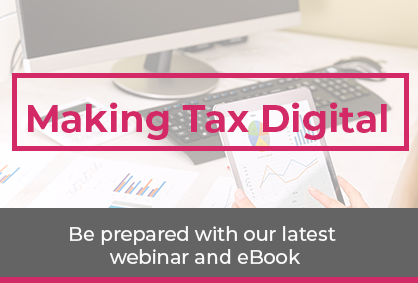BLOG
Many happy returns: Everything online retailers need to know about getting your product returns policy right…
 While all new retailers will put their heart and soul into sales and distribution, the returns process can often be something of an afterthought. After all, in an ideal world, you won’t be getting any products returned - right?
While all new retailers will put their heart and soul into sales and distribution, the returns process can often be something of an afterthought. After all, in an ideal world, you won’t be getting any products returned - right?
If you’re retailing online though, returns are a fact of life. When customers haven’t been able to see, feel, try or test your products in the flesh, it’s only natural that some items won’t live up to expectation.
It’s therefore essential that your returns policy is up to scratch - not just to keep your business on the right side of the law, but also to ensure a positive customer experience even when the purchase doesn’t work out.
Indeed, returns done right can be a huge boost for your business, potentially providing a unique selling point against your competitors. Some modern fashion businesses, for instance, are built around the very concept of simple, free returns, making it as easy as possible for consumers to buy and try a whole wardrobe of new items and only keep what they want.
Ultimately, your returns policy can be as obliging and appealing as you like, but there are some minimum legal requirements you’ll need to meet - so let’s take a look at the main statutory stipulations that apply.
The rules below to all B2C product sales (note that services and digital downloads are typically dealt with differently).
The customer’s right to cancel
An online product purchase typically represents a ‘distance’ or ‘off-premises’ contract. In most cases, provided this isn’t a B2B contract, a purchase of services or a digital download, the customer will have the right to cancel their order.
No reason is required for cancellation - the customer is entirely within their rights to simply change their mind and receive a refund.
There are, however, some exceptions to the rule. Personalised items, or those tailored specifically for the customer, only have to be refunded by law if they are faulty. The same applies to perishable items like food, and to newspapers and magazines.
Of course, even where the customer does have the right to cancel, this right is often voided the moment they open a product (for instance breaking the seal on cosmetics, or taking the cellophane off DVDs, CDs and computer software packages).
How long does a customer have to cancel an online purchase?
You can give customers as long as you like to return goods, and indeed, businesses will often extend their returns policy around busy periods like Christmas. This can be useful both to encourage risk-free shopping, and to help stagger what could otherwise be a difficult-to-manage deluge of returns in late December.
The law does however set a minimum requirement - meaning you must always give the customer 14 days from receipt of goods in which to cancel their order. If the order is delivered in multiple consignments, this cancellation period begins only when the final shipment is received.
Note that this 14-day period applies only to cancellation, not to the return of the goods. As long as the customer notifies you that they wish to cancel and return an order within those two weeks, they’ll legally have a further 14 days in which to return the goods.
Legally, the customer is obligated to pay the cost of the return postage - but offering free returns can be a real selling point for some businesses. Linking up with courier services or schemes like CollectPlus could be worth exploring.
Making the cancellation period clear
As the seller, it’s your duty to notify the customer of their rights in respect to cancellations, returns and refunds.
This information must be delivered pre-contract (hence the terms and conditions tickbox you always see at online checkout) - but it’s good practice to reinforce these rights on invoices and packing notes.
If you don’t make the duration of the cancellation period clear, it can legally be extended by a further 12 months.
How long do you have to process the refund?
Provided the customer has fulfilled their obligations by cancelling within 14 days (and returning the unused goods 14 days after that) you’re obliged to process a refund.
From a customer experience point of view, this should be issued as quickly as possible - but always it must be within 14 days of receiving the goods. Unless otherwise agreed with the customer, refunds should be made via the same method as payment was taken (ie credit card).
There are some footnotes to refund regulations that are worth noting. If a customer paid for a premium delivery service when they made the purchase (‘express’ or ‘next-day’ services for example) you’re still only obliged to refund standard delivery costs.
More help and support for online retailers
Starting up an online store? Here at Inform we provide an array of business support services to help you grow your e-commerce empire. Take a look at our services for retailers here, or get in touch with us on 0121 667 3882 / hello@informaccounting.co.uk
Read more of Inform's tax blogs:
Exciting new apps and MTD updates- here's what you need to know from Xerocon London 2018




.jpg?width=1500&height=1000&name=amy-hirschi-K0c8ko3e6AA-unsplash-(5).jpg)

